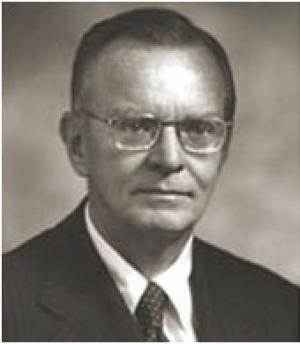
Richard M. Krause, M.D.
Director 1975–1984
Dr. Krause was born in Marietta, Ohio, on January 4, 1925. He received a B.A. degree from Marietta College in 1947 and in 1952 was graduated from Western Reserve University School of Medicine, now Case-Western Reserve. In the course of his medical studies, he participated in epidemiologic research on the prevention of rheumatic fever, which spurred his interest in the relationship between infection and immunity. He died January 6, 2015.
In 1954, following training at Barnes Hospital in St. Louis, Missouri, he joined the Rockefeller Institute and Hospital (now Rockefeller University) where he rose to the rank of professor. The persistent theme underlying his research concerned the substances in bacteria that stimulate the body's immune system. This is best exemplified by his research on the immune response to streptococcal polysaccharides. This led to an examination of the genetic factors that influenced the immune response. In recognition of his research achievements, he was elected to the U.S. National Academy of Sciences in 1977.
Appointed the director of NIAID in 1975, Dr. Krause was among the first to perceive "the return of the microbes." He guided the Institute through a period of growth to cope with the re-emergence of microbial diseases as health threats and to stimulate research on the complexity of the immune system.
The Institute was reorganized along programmatic lines and the Rocky Mountain Laboratory was restructured into independent laboratories. The Institute also led the way in recombinant DNA research and technology. Responding to the emergence of the AIDS epidemic in the early 1980s, Dr. Krause organized field studies in Haiti and Zaire in the search for the origins of the virus.
In July 1984, Dr. Krause retired from the U.S. Public Health Service and became Dean of Medicine at Emory University in Atlanta, Georgia. In 1989, he returned to National Institutes of Health to become a senior scientific advisor at the Fogarty International Center.

